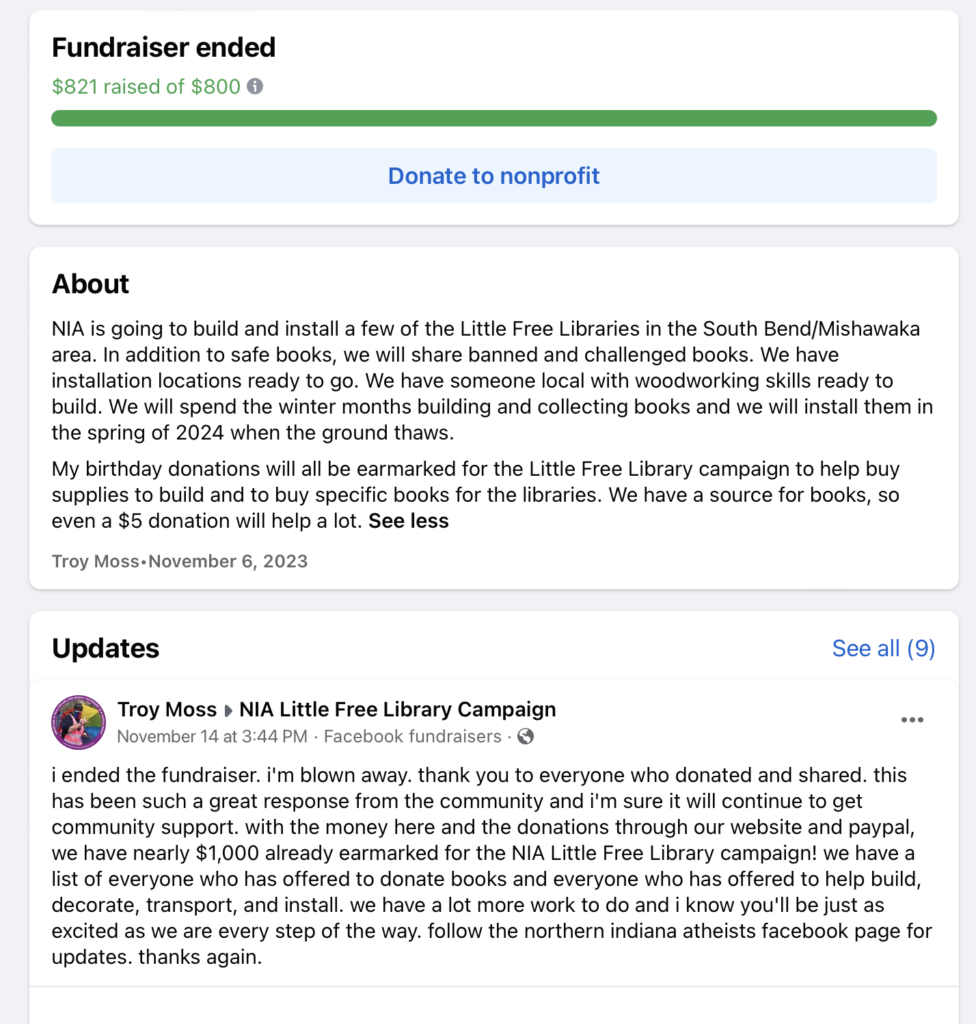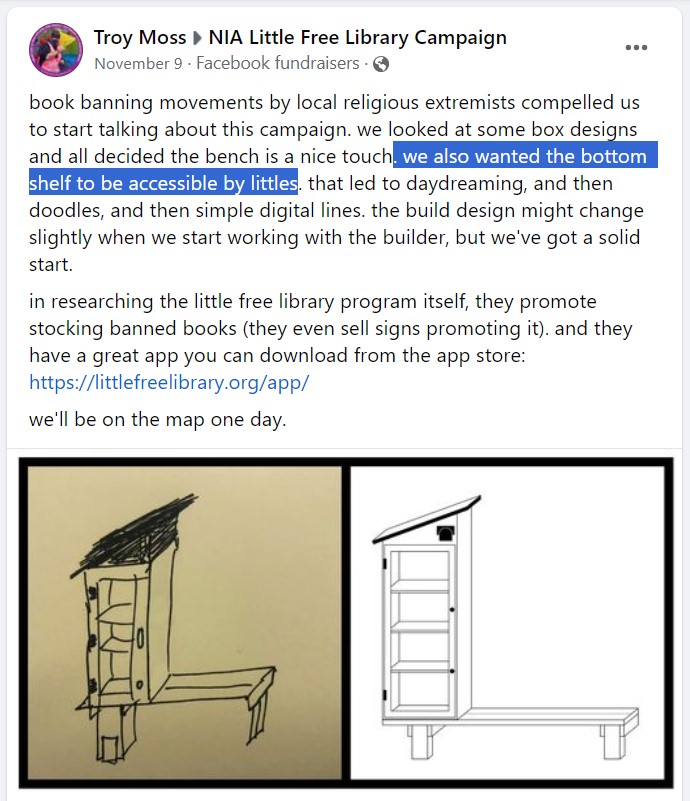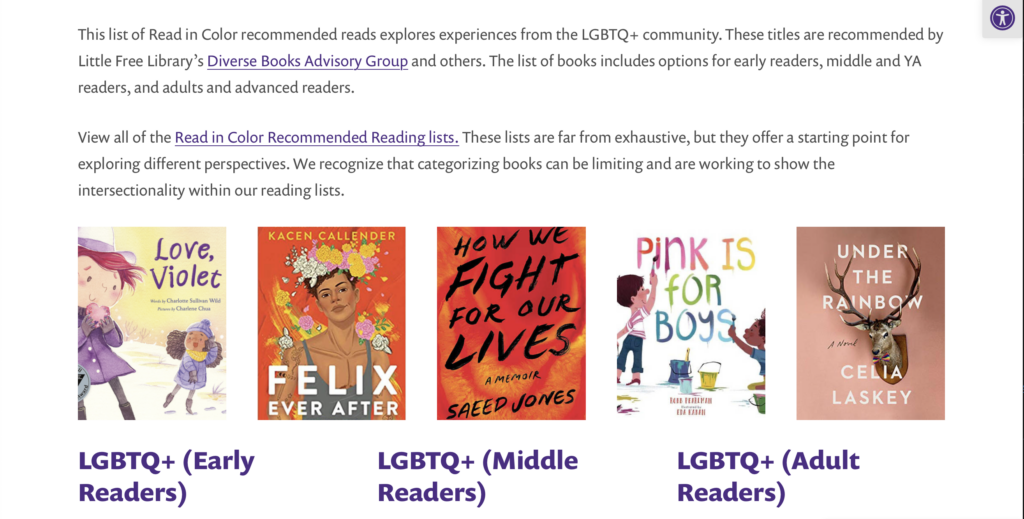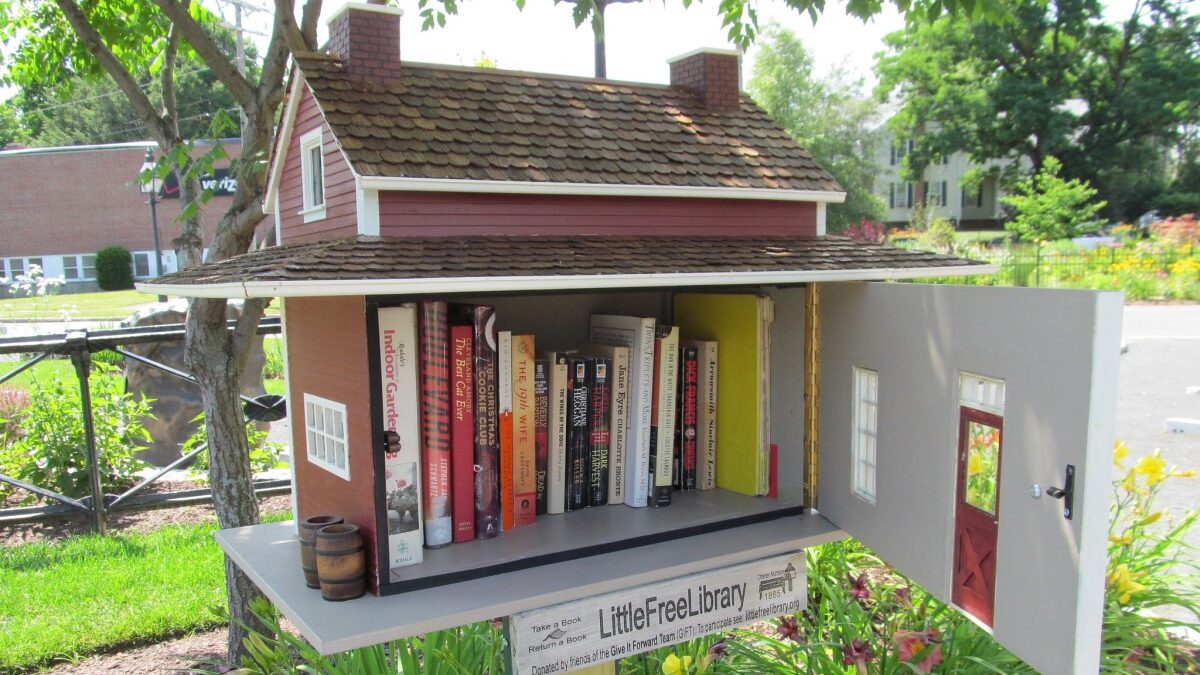The president of Northern Indiana Atheists raised money to build several Little Free Libraries in 2024 specifically to “share banned and challenged diverse books,” including those with LGBT messaging and pornographic material.
Troy Moss fundraised for the project over his Facebook page in November, surpassing his goal of $800. According to Moss, he gathered almost $1,000 for the project, which will begin in 2024. Little Free Libraries are small wooden boxes planted in neighborhoods that serve as book exchanges. Moss’s libraries will be built in the South Bend and Mishawaka, Indiana areas.
“We have installation locations ready to go,” Moss said in a recent update. “We will spend the winter months building and collecting books and we will install them in the spring of 2024 when the ground thaws.”

Moss wrote the project was motivated by recent efforts from “local religious extremists” to put books for children that show and describe queer sex acts on request-only shelves in the local government-run library.
“We want the bottom shelf to be accessible by littles,” Moss said, displaying his Little Free Library design. Neither Moss nor the Northern Indiana Atheists responded to requests for comment.

The Little Free Library national organization “does not police what stewards put in their Little Free Libraries,” spokeswoman Margret Aldrich said in an interview. The Little Free Library organization states on its website that “everyone who uses the library has the right of helping make sure the types of books in it are appropriate to neighbors of all ages and backgrounds.”
The libraries popping up in neighborhoods around the nation could easily be browsed by kids without any parental oversight. A young person coming home from the school bus or just walking around his neighborhood could grab any book out of the small houses — indeed, that’s what Moss appears to be hoping for.
As a largely volunteer and local-driven outfit, Little Free Library cannot control the contents of every Little Free Library across the nation. Yet the national organization actively encourages local libraries to stock extremist political books that many parents wouldn’t want their children to read.
Through their Read in Color program, started after the George Floyd riots, the national LFL organization promotes buying and stocking Little Free Libraries with LGBT materials that can, in theory, be accessed by children of any age. Little Free Library offers Read in Color reading lists that include categories for Jewish, Neurodivergent, African American, and Antiracist. Among the lists is one with LGBTQ+ books geared toward children as young as 4.
“We feel like everybody deserves to see themselves in the pages of a book,” Aldrich said. “That’s really powerful. We also think we can all learn from reading different perspectives. We feel that can help empathy and understanding and inclusion become a bigger part of our world.”
The organization partners with Banned Books Week Coalition, the American Library Association, HarperCollins Children’s Books, and Penguin Random House to spread books the majority of taxpayers don’t want subsidized through public schools or libraries. Little Free Library sells “This Little Free Library Shares Banned Books” signs on its website for stewards to place on their libraries.

Not all so-called banned books are equal. In fact, the “banned book” crusade deliberately conflates quality books with obscenity, anti-white racism, and pornography. Harper Lee’s To Kill a Mockingbird challenges the very real racism present in the 1930s Deep South. Anne Frank’s The Diary of a Young Girl presents the hard truth of a life in Nazi Germany.
Books like those are a far cry from Maia Kobabe’s Gender Queer, yet all appear on “banned books” lists. That 2019 graphic memoir includes explicit depictions of masturbation and oral sex. While Lee and Frank’s works are appropriate for older children and adults, it’s an open question whether Kobabe’s book deserves any readership at all, its innocent cover art notwithstanding.
Little Free Library and similar groups use the past or current “banned” status of these books to pretend all “banned” books have been unfairly rejected for public subsidy. Adults need to consider that while some books may be too mature for young children but beneficial to older ones, others are grossly inappropriate for any age. Older children may be ready to learn about the nuances and dark moments of history, but under no circumstances should be taught to touch themselves from a book.
One of the greatest benefits of reading is an experience of someone else’s life, especially when that experience gives the reader sensitivity to nuance and inspires virtue. Yet, belying claims of inclusivity, “diversity” as it is used by left-leaning organizations too often takes on an anti-white, anti-Christian meaning. The benefits of challenging content end when a charming story tells children lies they are too young to perceive.
Of course, children need to learn empathy, understanding, and inclusion, but that doesn’t come by way of lesbian and transgender stories for 4-year-olds. Rather, they need a firm grounding in the truth — girls are girls, boys are boys, and all people have dignity and value — in order to become the friends this world desperately needs.
Fairy tales and other well-written children’s literature teach children important things without venturing into obscene sexual messaging. They introduce children to the realities of sin, sorrow, and death without blurring the lines between good and evil.
Anyone who cares about the innocence of children should think before purchasing a Little Free Library kit or charter sign from the organization, rather than building a non-branded one themselves. “We have a retail arm where we sell Little Free Library boxes. The revenue that comes in from those sales goes directly into our programs,” Aldrich said. This includes the Read in Color program.
Adults should be conscious that Little Free Libraries near their homes may contain pornographic material and be prepared to guide children accordingly. Titles with innocuous, childlike cover art are not necessarily lovely and harmless: It’s worth skimming through a book before handing it to your voracious reader.
If a local Little Free Library offers queer children’s books, consider taking them out and replacing them with something beautiful, such as Little Bear, The Wind in the Willows, or Little House on the Prairie — titles I grew up with. Those books and so many others teach friendship, sensitivity, and virtue without pushing any kind of sexual messaging on young readers.
You could even build your own neighborhood library and stock it with enjoyable classics for all ages. If anything, we need more quality books readily available, not fewer.









